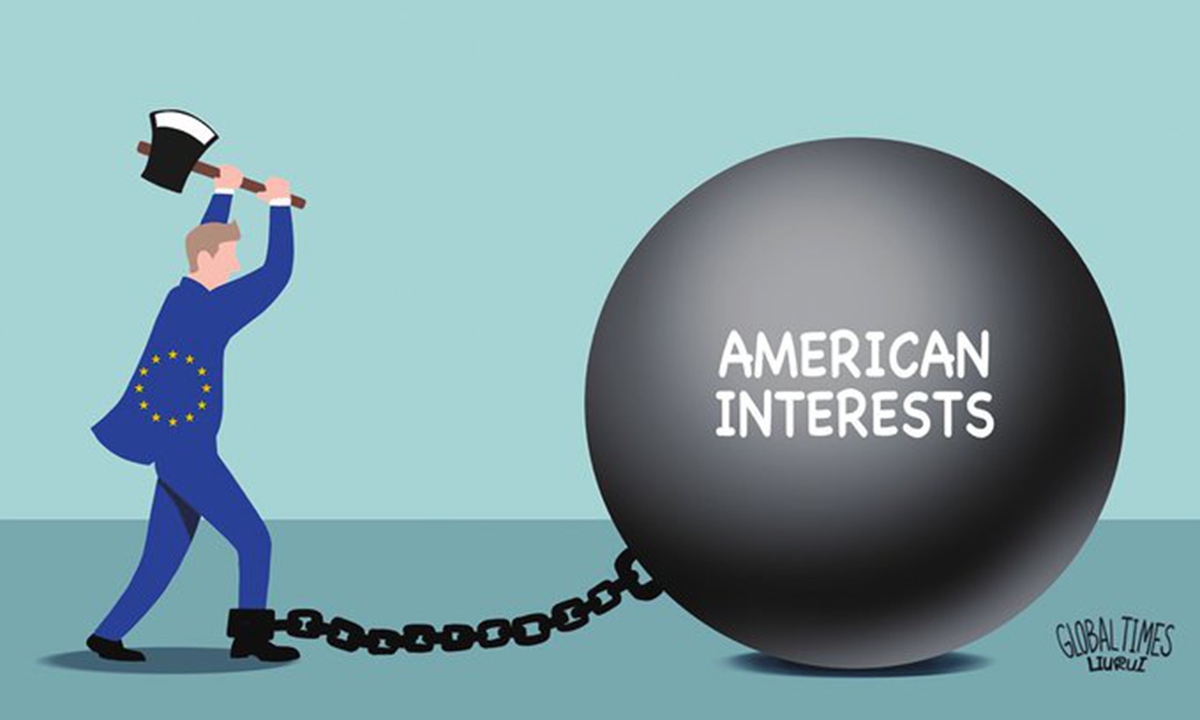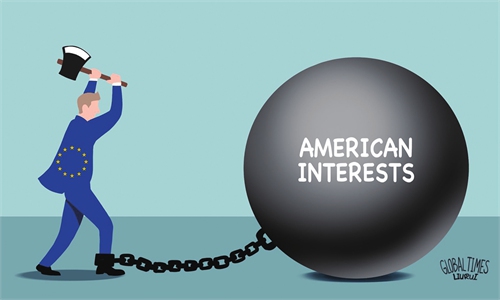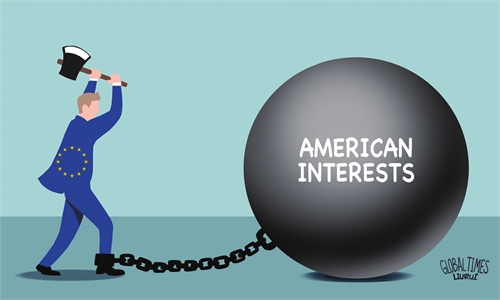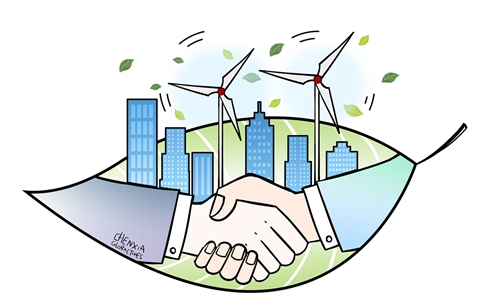
Illustration: Liu Rui/GT
A strange phenomenon in Europe is that politicians are calling for action against so-called "economic coercion" from China only because they feel it is risky to rely on trade with China. However, they strangely turn a blind eye to the US' abuse of its economic and financial hegemony, as well as its reckless protectionist practices. What they fail to see is that an EU at the mercy of their US ally will only become weaker and more dependent on the US, which is also too risky to imagine.Top US and EU officials began a two-day meeting of the EU-US Trade and Technology Council in Sweden on Tuesday, during which China has become a major focus. While the US has pushed for a more confrontational approach to China, EU states agreed on a watered-down version of joint conclusions, according to Bloomberg, citing people familiar with the matter.
The EU's efforts to remove explicit references to China indicate that the EU is still undecided between adopting the hawkish US line and prioritizing its own needs to avoid making China-EU relations a secondary function of China-US relations. The differences between the US and the EU on their approach to China reflect the fact that their interests are not completely aligned. While the US and the EU share the same values, there is a growing awareness in Europe that values should not prevent the EU from achieving a certain degree of strategic autonomy and speaking more boldly for its own interests.
The US has been using the ideological dispute between China and the West as the main tool to mobilize the EU to be the vanguard in containing China. However, at a time when the US is also trying to exploit Europe's interests, strengthening strategic independence has become increasingly essential for the EU to safeguard its own interests.
Besides the geopolitical and economic losses caused by the Russia-Ukraine crisis, Europe has become more vulnerable to the blatant US attempt to further exploit the continent's economic interests.
While exporting expensive energy products such as liquefied natural gas to Europe, the US has also undermined Europe's manufacturing strength through green subsidies and other means. This is because the Inflation Reduction Act has created favorable investment conditions, making others look "unfavorable" and thus effectively attracting European manufacturers to invest and transfer production to the US.
For example, Stellantis, whose brands include Fiat and Peugeot, is considering one or even two additional large factories for electric vehicle batteries in the US to reach its output targets, according to Reuters.
On the other hand, the US has been pressuring the EU to be as tough as it is with China, which further erodes the EU's overall trade interests by limiting the possibility of close China-EU cooperation. However, the independent economic and trade relations between China and the EU should not be led by the nose by the US. In the face of real economic coercion from the US, the EU should be bolder in defending and shaping its economic relationship with China based on its own needs.
There is no denying that the EU is facing competition pressure from both China and the US, and this trend of growing competition among the three powers will not change in the short term. But this is not a reason for the EU to only focus on competition with China. When it comes to trade with China, the EU needs to ask itself what kind of economic and trade relations it needs with China and whether it aligns with its own development needs. One thing is certain: The EU will only be a US vassal if it continues to follow the US in containing China.



